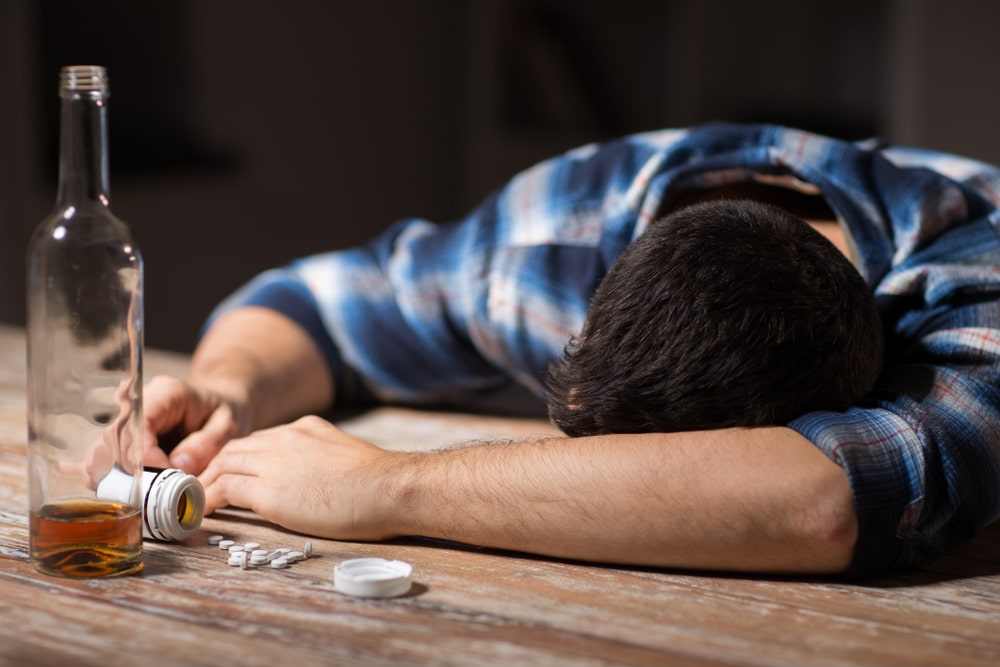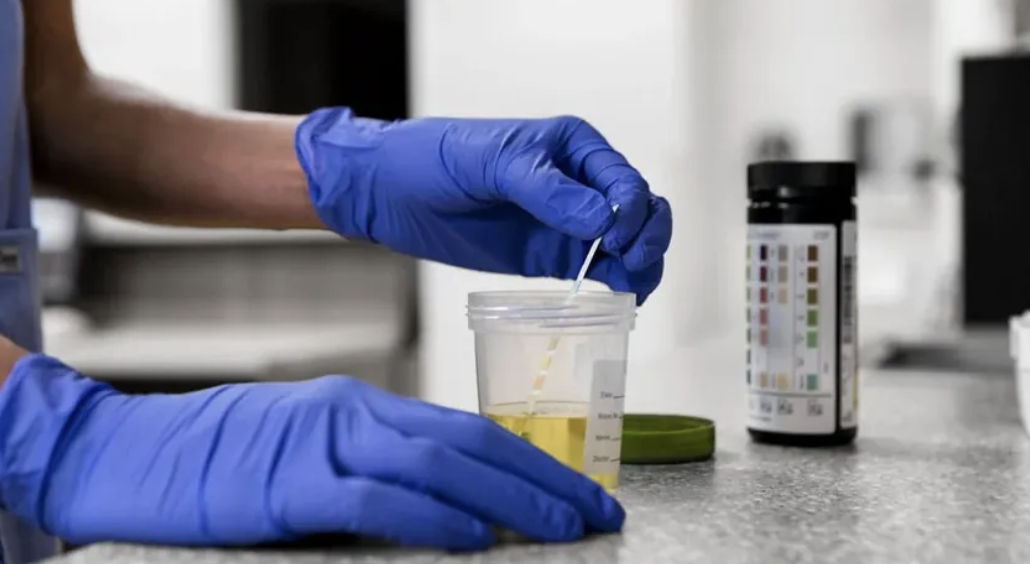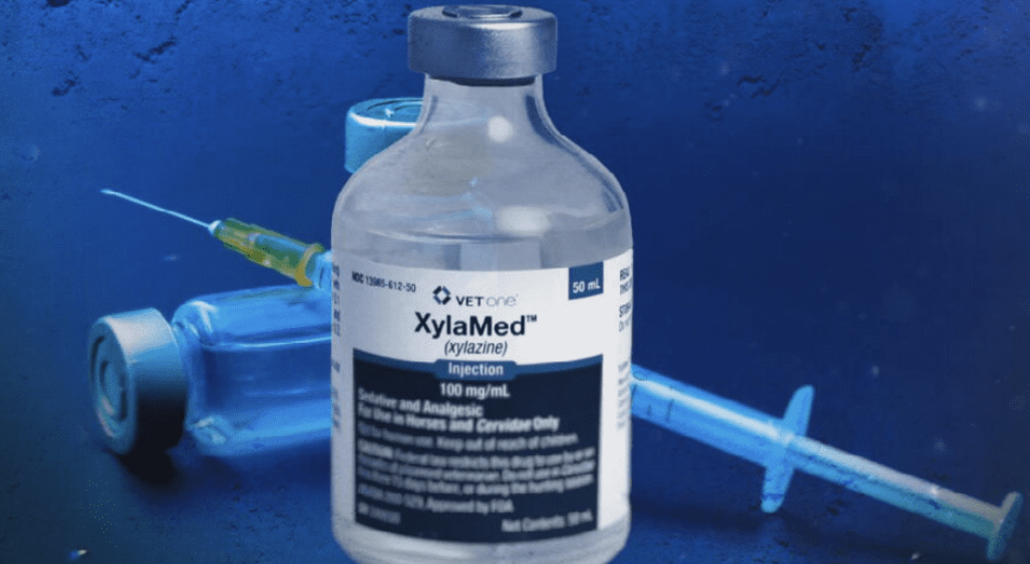Alcohol poisoning represents a severe and potentially life-threatening result of drinking large quantities of alcohol within a brief period. A 2015 article, “Alcohol Poisoning Deaths: A Deadly Consequence of Binge Drinking,” published in the Centers for Disease Control and Prevention (CDC)’s Vital Signs, reported that from 2010 to 2012, an average of six people died each day in the United States from alcohol poisoning.
Key indicators of alcohol poisoning include confusion, slow or irregular breathing, and vomiting. Additional signs may involve seizures and a drop in body temperature.
Alcohol poisoning happens when high alcohol intake suppresses critical brain functions responsible for controlling breathing, heart rate, body temperature, and other essential processes. It most often develops during episodes of binge drinking.
Due to the dangerous nature of alcohol poisoning, urgent medical intervention is necessary. This article provides further details on symptoms, underlying causes, treatment options, and other important information related to alcohol poisoning.
At what point does alcohol poisoning happen?
A 2021 article titled “Blood Alcohol Concentration” from the University of Notre Dame states that alcohol poisoning is typically reached when blood alcohol concentration (BAC) falls between 0.250% and 0.399%. Blood or breath alcohol concentration measures the level of alcohol present in a person’s breath or bloodstream, expressed as grams of ethanol per 100 milliliters of blood or per 210 liters of breath.
The rate at which an individual becomes intoxicated by alcohol varies from person to person. For example, a man weighing up to 160 pounds may develop alcohol poisoning after drinking 15 shots of hard liquor within three to four hours. In contrast, a woman weighing up to 120 pounds could experience alcohol poisoning after nine shots of hard liquor in the same timeframe. After the final drink, the level of alcohol in the bloodstream may continue to increase for 30 to 40 minutes. Consequently, symptoms of alcohol poisoning can significantly worsen, as described in the National Health Service (NHS) article “Alcohol Poisoning,” last reviewed in January 2023.

What are the symptoms of alcohol poisoning?
Alcohol poisoning is marked by several serious physical and behavioral symptoms that occur when someone consumes too much alcohol too quickly. The most frequent signs of alcohol poisoning are listed below.
- Confusion: Disorientation, delayed responses, slowed reaction times, and trouble walking
- Seizures: Tonic-clonic seizures, which include both muscle stiffening and jerking or twitching
- Vomiting: Happens when the body cannot process excessive alcohol intake
- Irregular pulse or breathing: Periods between breaths exceeding 10 seconds
- Slow breathing: Fewer than eight breaths taken per minute
- Hypothermia: Abnormally low body temperature
- Passing out: Loss of consciousness and trouble waking up
- Pale or blue-tinged skin: Skin appears clammy, cold, pale, or blotchy due to reduced body temperature
How long do alcohol poisoning symptoms last?
Alcohol poisoning symptoms can last anywhere from several hours to over 24 hours, depending on the amount of alcohol consumed, the person's body weight, metabolism, age, and overall health. On average, symptoms may persist for 8 to 12 hours but can extend longer if blood alcohol concentration (BAC) remains high or complications arise. In severe cases, especially when medical attention is delayed, recovery may take up to 24 hours or more, and hospitalization may be required to stabilize vital functions and prevent complications like alcohol withdrawal.
What are the possible causes of alcohol poisoning?
The underlying factors behind alcohol poisoning involve consuming large amounts of alcohol over a brief time, leading to a significantly elevated blood alcohol level. The main causes of alcohol poisoning are outlined below.
- Binge drinking: This involves heavy drinking patterns, where women consume four or more drinks in two hours, and men consume five or more in the same period. When the liver cannot keep up with the amount of alcohol ingested, alcohol poisoning can result. Drinking quickly raises BAC rapidly, impairing both physical and mental functions, a hallmark pattern of binge drinking as detailed in a 2023 article by Medical News Today.
- Other forms of alcohol (non-ethanol): Consuming substances like methanol or ethylene glycol (found in antifreeze, solvents, and paint) and isopropyl alcohol (present in lotions, rubbing alcohol, and some cleaning products) can also lead to alcohol intoxication requiring immediate medical attention, according to a 2023 article titled “Alcohol poisoning” from Mayo Clinic. Nonetheless, the majority of alcohol poisoning cases are due to ethyl alcohol, the type present in alcoholic beverages.

How much alcohol can cause alcohol poisoning?
Alcohol poisoning can occur when the blood alcohol concentration (BAC) reaches dangerously high levels, typically around 0.40%, which equals 400 mg/dL or 4 g/L of blood. Reaching this level depends on several factors, including body weight, sex, metabolism, and the rate of alcohol consumption. On average, consuming approximately 5 liters of wine, 1.5 to 2 liters of spirits, or 6 to 7 standard drinks in a short period (such as within one hour) can potentially cause alcohol poisoning in an adult weighing around 70 kg. However, smaller amounts may be toxic for individuals with lower body weight, certain medical conditions, or reduced alcohol tolerance. Because the threshold varies by person, recognizing early symptoms, such as vomiting, confusion, slowed breathing, or unconsciousness, is critical. Alcohol poisoning is a medical emergency and requires immediate treatment.
Can you get alcohol poisoning the day after drinking?
Yes, you can experience alcohol poisoning symptoms the day after drinking, although it is less common and typically linked to delayed effects from heavy alcohol consumption the night before.
Alcohol poisoning occurs when there is a dangerously high level of alcohol in the bloodstream, and it takes time for the liver to metabolize and eliminate alcohol, usually about one standard drink per hour. If someone drinks large quantities over a short period, their blood alcohol concentration (BAC) can continue rising even after they stop drinking. This means that symptoms of alcohol poisoning, such as confusion, slow or irregular breathing, vomiting, and unresponsiveness, may not fully appear until several hours later, even into the following morning.
Additionally, if a person falls asleep or passes out without medical supervision, they may wake up with severe symptoms or remain unconscious due to alcohol still circulating in the system. It's crucial to understand that just because the drinking has stopped, the risk isn't over. Alcohol continues to affect the brain and vital functions until it is completely metabolized, which is why seeking prompt medical help is vital when alcohol poisoning is suspected.
What are the effects of alcohol poisoning?
Alcohol poisoning occurs when excessive alcohol consumption overwhelms the body’s ability to metabolize it, leading to serious effects of alcohol on critical systems like the brain and heart. This condition can depress vital life-supporting functions such as breathing, heart rate, and body temperature, potentially resulting in coma or death.
Short-Term Effects of Alcohol Poisoning:
- Confusion and disorientation: Impaired mental state due to the depressant effects of alcohol on the central nervous system.
- Vomiting: The body's attempt to expel excess alcohol.
- Seizures: Resulting from abnormal electrical activity in the brain.
- Slow or irregular breathing: Respiratory depression caused by alcohol's impact on the brainstem.
- Hypothermia (low body temperature): Alcohol-induced vasodilation leads to heat loss.
- Unconsciousness or inability to wake: A sign of severe central nervous system depression.
- Pale or bluish skin: Indicates poor oxygenation of the blood.
Long-Term Effects of Alcohol Poisoning:
- Brain damage: Prolonged oxygen deprivation can lead to permanent cognitive impairments.
- Liver damage: Repeated episodes can cause fatty liver, hepatitis, or cirrhosis.
- Heart problems: Chronic alcohol abuse increases the risk of cardiomyopathy and arrhythmias.
- Pancreatitis: Inflammation of the pancreas due to repeated alcohol-induced injury.
- Increased risk of alcohol dependence: Frequent binge drinking can lead to alcohol addiction, especially when tolerance increases and withdrawal symptoms emerge.
Immediate medical attention is crucial for anyone suspected of having alcohol poisoning. Timely intervention can prevent these severe complications and improve outcomes.

Does alcohol poisoning cause food poisoning?
No, alcohol poisoning does not cause food poisoning, as they are distinct conditions with different causes and effects.
Alcohol Poisoning results from consuming large amounts of alcohol in a short period, leading to toxic levels in the bloodstream. This condition can depress vital life-supporting functions such as breathing, heart rate, and body temperature. Severe cases may result in unconsciousness, hypothermia, seizures, or even death. Immediate medical attention is crucial to prevent long-term complications or fatality.
Food Poisoning, on the other hand, is caused by ingesting contaminated food or beverages containing harmful bacteria, viruses, parasites, or toxins. Common symptoms include nausea, vomiting, diarrhea, abdominal cramps, and fever. While most cases resolve within a few days, some can lead to severe dehydration or more serious health issues, especially in vulnerable populations.
Which groups face a higher risk of alcohol poisoning?
Individuals who often participate in binge drinking are at the greatest risk for alcohol poisoning. Several factors influence a person’s vulnerability to alcohol poisoning, such as body size and weight, current health status, recent food intake, and the use of alcohol alongside other substances or medications.
Additional risk factors include the alcohol content of beverages, the quantity and speed of consumption, and individual tolerance levels. In general, people with larger body sizes absorb alcohol more slowly than those who are smaller. Higher water content in the blood leads to greater dilution of alcohol.
Conversely, individuals with lower body weight have less blood and water volume, so consuming the same amount of alcohol as a heavier person results in a higher blood alcohol ratio.
Eating before or while drinking slows down how quickly alcohol enters the bloodstream, while drinking on an empty stomach increases the risk of negative effects, including alcohol poisoning. Some medications can also interfere with alcohol absorption and heighten the risk of alcohol poisoning.
People who drink frequently tend to develop greater tolerance compared to those who drink rarely. However, this is not a recommendation to drink more often, as it poses significant health risks.
Alcohol poisoning is more prevalent among young adults, like college students, and adults aged 35 or older. Men experience this condition more frequently than women.
What are some ways to prevent alcohol poisoning?
Preventing alcohol poisoning requires responsible drinking practices and maintaining self-discipline when consuming alcohol. The strategies for how to avoid alcohol poisoning are listed below.
- Refrain from alcohol or consume in moderation: Completely abstaining from alcohol is the most effective way to prevent alcohol poisoning. For those who choose to drink, moderation is key. For healthy adults, moderation means up to two drinks per day for men aged 65 or younger, and a maximum of one drink per day for women of all ages and men over 65.
- Slow down your drinking rate: Individuals who consume alcohol should do so at a slower pace. Drinking quickly increases the likelihood of alcohol poisoning.
- Eat beforehand: Eating before or while drinking is a crucial way to prevent alcohol poisoning. Consuming alcohol on an empty stomach can lead to side effects and a higher risk of alcohol poisoning.
- Store alcohol-containing products securely: Alcohol poisoning can also result from ingesting non-beverage forms of alcohol. As such, it’s important to keep all alcohol-containing products safely stored away, particularly in homes with young children. Ensure these items are kept out of reach.
- Be cautious: Do not consume a drink if you aren’t certain of its contents or if it has been mixed with energy drinks.
- Don't combine alcohol with medications: Many people, especially middle-aged and older adults, take prescription medications. Mixing alcohol with prescription pills can be dangerous and should be avoided.
- Stay hydrated: Drinking water in between alcoholic drinks can help lower the risk of alcohol poisoning.
- Avoid drinking games: While they may seem entertaining, these games encourage excessive alcohol intake, binge drinking, and increase the risk of alcohol poisoning. It’s best to steer clear of such activities.
- Steer clear of “mega” drinks: Drinks such as Long Island Iced Tea and other oversized beverages contain significantly more alcohol than a standard serving. Although they may appear harmless, these drinks deliver higher amounts of alcohol and increase the risk of poisoning.
Many people seek advice on how to avoid alcohol poisoning. The only guaranteed method is to abstain from drinking altogether. For those who choose to drink, following these guidelines can help minimize the risk of alcohol poisoning:
- Stay hydrated
- Avoid drinking on an empty stomach
- Consume alcohol in moderation
- Avoid drinking games and mixing alcohol with prescription medications
- Inform children, family, and friends about the dangers of excessive drinking
According to the article “Antidotes for Poisoning by Alcohols That Form Toxic Metabolites” by Douglas McMartin and Torben Jacobsen, last revised in 2022, preventing alcohol toxicity relies not only on avoiding large doses but also on recognizing and intervening before metabolic byproducts accumulate to dangerous levels. Early education and preventive strategies are vital to minimize risks.
Ultimately, the only guaranteed way to avoid alcohol poisoning is to abstain from alcohol altogether. For those who drink, following these practices significantly reduces the likelihood of experiencing harmful effects.
When is it necessary to get emergency medical help?
It’s essential to seek medical help if you notice symptoms or warning signs of alcohol poisoning, even if only a few symptoms are severe. Immediate medical attention is especially critical for anyone who is unconscious and cannot be awakened, as they face a significant risk of death.
Keep in mind that alcohol poisoning is a medical emergency and should never be ignored. If you suspect someone has alcohol poisoning, call the local emergency number right away and be ready to share details. Emergency responders will ask what type of alcohol was consumed and how much.
If a person loses consciousness, never leave them alone. Alcohol poisoning can impair the gag reflex, so someone affected may choke on their vomit and struggle to breathe. Never try to make an unconscious person with alcohol poisoning vomit, as they could choke.
If the person is vomiting, help them stay upright. If they must lie down, gently turn their head to the side to prevent choking. Encourage them to remain awake and alert to avoid losing consciousness.
One major challenge is that people sometimes hesitate to seek help. Some individuals may not realize they or someone else is experiencing alcohol poisoning, or they might fear the other person will be upset if they call for assistance.
Acting quickly and getting medical care can be life-saving. The faster someone with alcohol poisoning receives treatment, the better the chances of recovery, according to an article titled, “Alcohol Poisoning,” last reviewed in October 2020 by the Cleveland Clinic.
While you wait for emergency services, give water to the affected person if they are able to drink, and make sure to keep them warm. Remember, a drop in body temperature is a significant symptom of alcohol poisoning. It is important not to tell anyone to “sleep it off” or attempt to sleep it off, as symptoms may worsen over time.
How do hospitals manage alcohol poisoning cases?
In hospital settings, alcohol poisoning is managed through supportive care as the body processes and eliminates the alcohol. The typical hospital treatments for alcohol poisoning include:
- Careful monitoring of vital signs
- Oxygen therapy
- Preventing choking and respiratory issues
- Administering intravenous fluids to combat dehydration
- Providing glucose and vitamins to reduce the risk of complications
- Hemodialysis, reserved for cases involving ingestion of isopropyl alcohol or methanol
Prompt medical treatment is crucial to minimize the risk of severe complications. Common complications from alcohol poisoning include choking, apnea (cessation of breathing), seizures, extreme dehydration, brain injury, and potentially death. The hospital treatment process generally involves:
- Intubation: inserting a tube into the mouth and windpipe to clear the airway and assist breathing
- Catheterization: placing a catheter to aid urination and prevent incontinence
- Administration of intravenous fluids
- Stomach pumping, in certain situations, is used to remove toxic fluids
How long does it take to get over alcohol poisoning?
Alcohol poisoning is a serious medical emergency that occurs when a person consumes a toxic amount of alcohol, leading to critical impairments in vital bodily functions such as breathing, heart rate, and temperature regulation. The duration of alcohol poisoning and the recovery process can vary based on several factors, including the amount of alcohol consumed, the individual's body weight, metabolism, and overall health.
Typically, the acute symptoms of alcohol poisoning can last for several hours. However, the body may take up to 24 hours or more to fully metabolize and eliminate the alcohol from the system, depending on the severity of the poisoning and individual factors. During this time, supportive medical care is crucial to manage symptoms and prevent complications.
It's important to note that while the immediate effects may subside within a day, alcohol poisoning can have lasting consequences. In severe cases, it can lead to long-term health issues such as brain damage, liver disease, and an increased risk of alcohol dependency.
If alcohol poisoning is suspected, it is imperative to seek emergency medical attention immediately. Prompt treatment can significantly improve outcomes and reduce the risk of long-term complications.
What are the suggested alcohol limits?
According to the 2020-2025 Dietary Guidelines for Americans, released in December 2020 by the U.S. Department of Agriculture and U.S. Department of Health and Human Services, recommended alcohol limits are one drink or fewer daily for women and up to two drinks daily for men. The guidelines suggest women should not consume more than seven drinks weekly, while men should limit their intake to no more than 14 drinks per week. Meanwhile, an article titled "Drinking Levels Defined," last updated in 2023 by the National Institute on Alcohol Abuse and Alcoholism (NIAAA), indicates that men should limit consumption to no more than five drinks daily and women to no more than four. Although the daily recommendations from these organizations differ, their weekly limits align. Both the Dietary Guidelines and NIAAA advocate that women should stay under seven drinks weekly and men under 14.
How fast can alcohol poisoning become fatal?
Alcohol poisoning can become fatal rapidly, often within 1 to 3 hours after excessive consumption. This swift progression is due to alcohol's depressive effects on vital functions such as breathing, heart rate, and body temperature. As blood alcohol concentration (BAC) rises, these critical systems can slow down or stop, leading to coma or death.
A BAC of 0.40% or higher is considered potentially lethal. For an average adult, this level might be reached by consuming approximately 5 liters of wine or 1.5 liters of spirits in a short period. However, individual factors like body weight, tolerance, and overall health can influence this threshold.
It's important to note that alcohol continues to be absorbed into the bloodstream even after a person stops drinking or loses consciousness. This means that BAC can continue to rise, increasing the risk of fatal outcomes if medical intervention is not promptly sought.
Can consuming too much alcohol be deadly?
Yes, it is possible to consume a lethal amount of alcohol when blood alcohol concentration (BAC) reaches 0.40% or higher. At this BAC level, coma can occur, and the risk of death from respiratory failure is extremely high. Many people question whether alcohol can be fatal, but this is a very real possibility—especially for individuals living with untreated alcoholism.
A particularly alarming aspect is that BAC can continue to rise for up to 40 minutes after the last drink. This means that someone who has consumed a large amount of alcohol remains at risk for alcohol poisoning and its dangers even after they have stopped drinking.
















